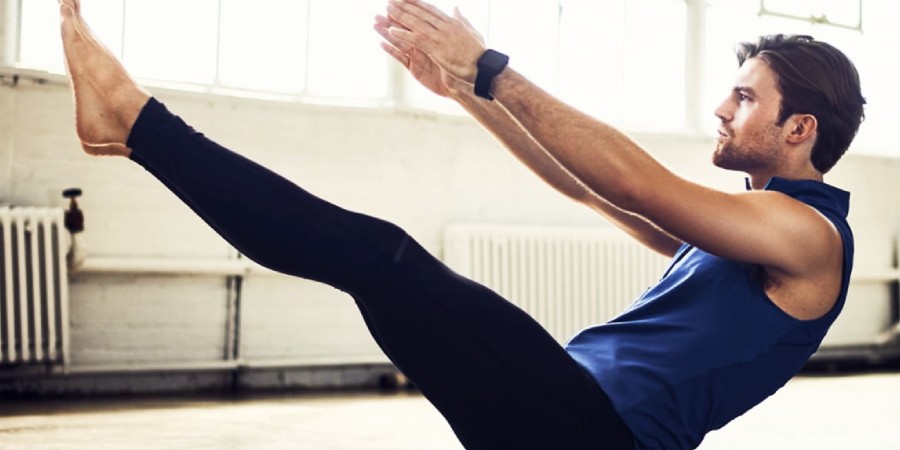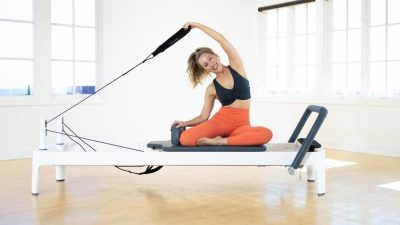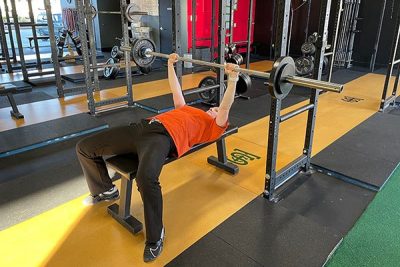
Pilates, a fitness regime founded by Joseph Pilates in the early 20th century, has long been perceived as a female-dominated practice. However, recent trends indicate a significant shift as more men are embracing Pilates, recognizing its profound benefits for core strength, flexibility, and injury prevention. This Memorial Day, as we honor the contributions and sacrifices of men in the armed forces, it is also fitting to commemorate this growing trend of male participation in Pilates—a practice that holds particular relevance for enhancing physical health and resilience.
The Historical Context of Pilates
Joseph Pilates, the creator of this fitness method, developed his exercises during World War I to help injured soldiers regain their strength and mobility. Originally named “Contrology,” Pilates was designed to improve physical endurance, flexibility, and overall body control through a series of controlled, low-impact movements. Despite its origins in rehabilitative exercise for men, Pilates gradually became popular among women, particularly dancers and those seeking low-impact workouts.
The Shift in Demographics
In recent years, the perception of Pilates as a predominantly female activity has been challenged. Men, including professional athletes and fitness enthusiasts, are increasingly turning to Pilates for its comprehensive benefits. This change is driven by several factors:
Core Strength and Stability: Pilates is renowned for its focus on core muscles, which include the abdominals, lower back, hips, and glutes. A strong core is essential for virtually every movement, enhancing performance in sports and daily activities. For men, developing core strength through Pilates can lead to better posture, improved balance, and greater overall strength.
Flexibility and Range of Motion: Flexibility is often an overlooked aspect of fitness, especially among men who prioritize weightlifting and cardio. Pilates promotes flexibility by stretching and lengthening muscles, reducing the risk of injuries and enhancing athletic performance. This is particularly beneficial for athletes in sports requiring a wide range of motion, such as swimming, tennis, and martial arts.
Injury Prevention and Rehabilitation: The controlled movements and emphasis on proper alignment in Pilates make it an effective tool for injury prevention and rehabilitation. For men recovering from sports injuries or seeking to avoid them, Pilates offers a safe, low-impact way to strengthen muscles and joints, enhancing resilience and longevity in physical activities.
Holistic Fitness Approach: Pilates integrates physical and mental training, promoting not just physical strength but also mental focus and body awareness. This holistic approach resonates with many men looking to enhance their overall well-being, reduce stress, and improve mental clarity.
The Role of Pilates in Athletic Training
Prominent athletes have incorporated Pilates into their training routines, further highlighting its benefits and breaking down gender stereotypes. For instance, NBA star LeBron James and NFL quarterback Tom Brady are known proponents of Pilates, crediting it for their agility, core strength, and prolonged careers. This visibility has encouraged other men to explore Pilates, recognizing its value beyond traditional gym workouts.
Pilates and Memorial Day: Honoring Strength and Resilience
Memorial Day is a time to honor the men and women who have served in the armed forces, acknowledging their sacrifices and contributions to national security. In commemorating this day, it’s pertinent to also celebrate the evolution of fitness practices that contribute to the strength and resilience of those who serve.
Pilates, with its roots in rehabilitating injured soldiers, offers significant benefits to military personnel. The focus on core stability, flexibility, and controlled movements aligns well with the physical demands placed on soldiers. As more military fitness programs incorporate Pilates, servicemen can experience improved physical health, reduced injury rates, and enhanced recovery processes.
Personal Stories: Men Embracing Pilates
Personal testimonials from men who have adopted Pilates underscore its transformative impact. John, a 45-year-old firefighter, began Pilates to address chronic back pain and enhance his flexibility. He credits Pilates with improving his physical performance on the job and alleviating pain, allowing him to continue serving his community effectively.
Similarly, Mike, a former Marine, integrated Pilates into his post-service fitness routine to manage stress and maintain physical fitness. He found that the mental focus required in Pilates helped him cope with anxiety, while the physical exercises improved his overall strength and flexibility.
Conclusion: A New Era in Fitness
The growing male participation in Pilates signifies a broader acceptance and recognition of its benefits across genders. As this trend continues, it is likely that Pilates will become a staple in men’s fitness routines, valued for its comprehensive approach to physical and mental well-being.
This Memorial Day, as we honor the sacrifices of our servicemen, let us also recognize the importance of maintaining their health and resilience through practices like Pilates. By embracing Pilates, men can achieve a balanced, holistic approach to fitness that supports both their physical and mental strength, echoing the enduring legacy of strength and perseverance that Memorial Day commemorates.






